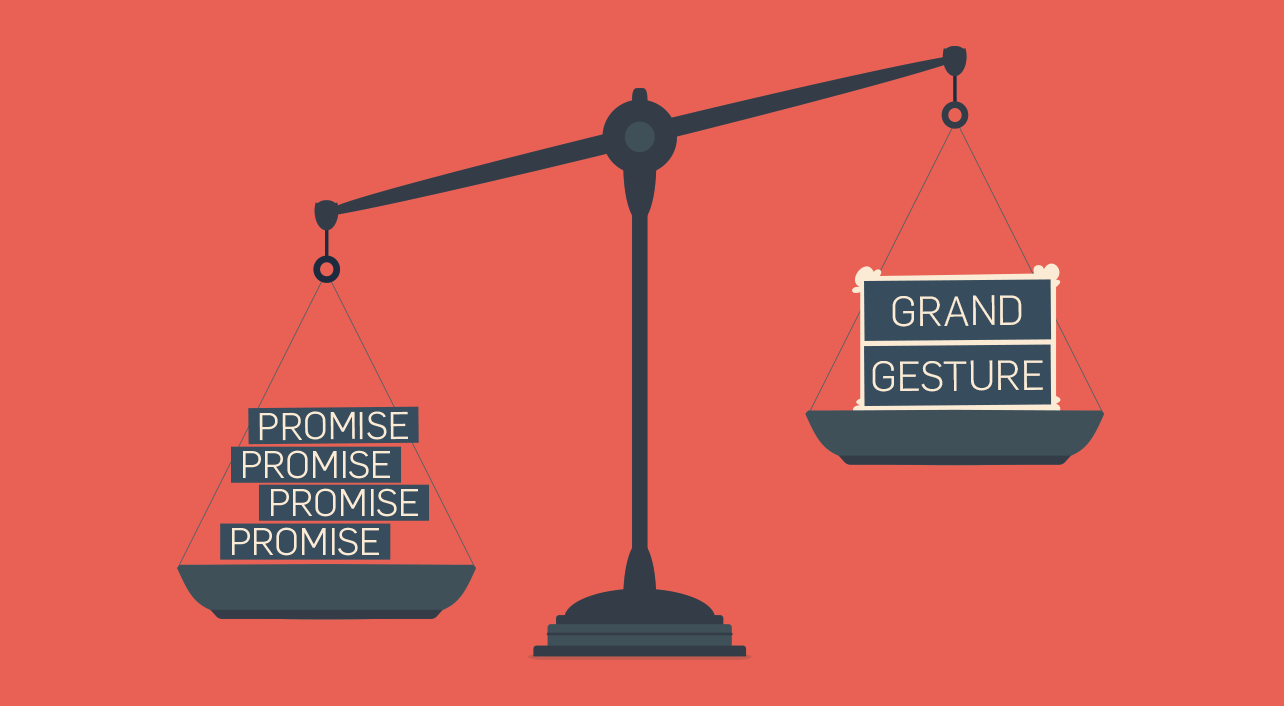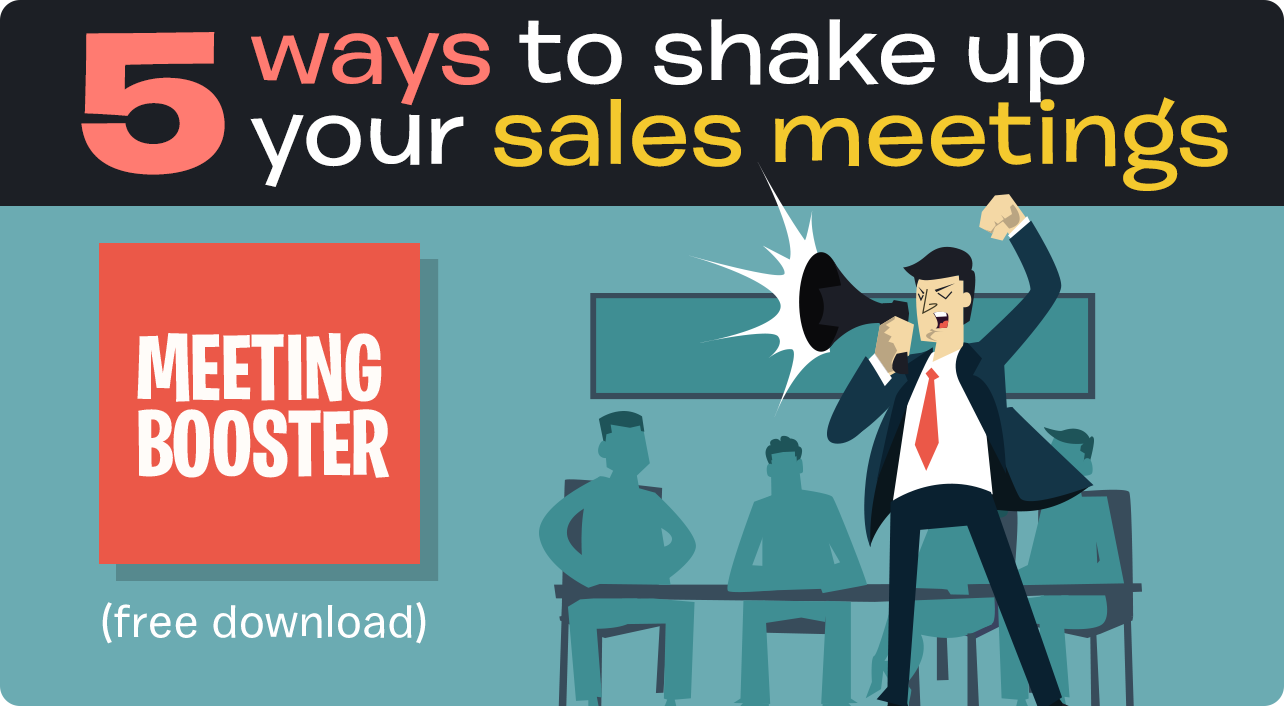- sales
- Blog post
Underpromise and overdeliver? Don’t waste your time
A long-standing belief in Sales suggests that the way to earn trust and loyalty among customers is to underpromise and then wow them by overdelivering. Another belief – which became the title of a sales book many years ago – promotes the idea of “knock your socks off service.” Once again, the idea is to impress customers with a grand gesture that would make them unwilling to consider doing business with another vendor in your area.
For better or worse, research suggests that these grand gestures don’t really have much impact on customer loyalty. In fact, research shows, making – and keeping – many small promises can do more to build your relationship with your buyers.
The research
To see why, let’s take a closer look at the science of promises, with a study from the University of Chicago’s business school and the UC-San Diego school of management. Researchers asked people to imagine a scenario in which a friend promised to help them with an important task. Then the researchers presented three different outcomes:
- One group of subjects was told that the friend dropped the ball, providing much less help than expected.
- The second group was told that the friend had done what he’d promised.
- The third group was told that the friend overdelivered – providing more help than expected.
Next, the people in the experiment were asked how they felt about their hypothetical friend – to rate him or her as selfish, fair or generous, and to indicate how grateful they felt toward him or her.
No surprise, the researchers found that evaluations were significantly more positive toward those who kept their promises than those who broke them.
What is surprising is that exceeding the promise – giving people more than they expected – brought no additional benefit to the promise maker.
That last finding tells us something very important about the nature of promises. It’s making and keeping a promise that matters most. The researchers concluded that a kept promise earns something psychologists call a “fairness premium”: In order to be fair, the person receiving the promise feels obliged to acknowledge not only that the promise makers provided valuable help, but also that they are good, reliable human beings.
Small promises
What does seem to make a difference, according to this study, isn’t the size of the promises but the frequency of promises. You earn a customer’s trust and loyalty by making many promises. It goes without saying, of course, that you must keep these promises – so it’s best to avoid the “knock your socks off” promises that you might, or might not, be able to keep. Instead, make promises you can keep – even if they’re small, mundane ones. For example: “Your shipment will arrive on Tuesday,” or “I’ll call you on Thursday to see how you’re doing with installation,” or “I promised to introduce you to my colleague. I spoke to her yesterday and she’s waiting for your call.”
When you keep these promises – simple and mundane as they might be – buyers see you as someone who does what they say, and deliver what they promise. The promises aren’t occasional, but frequent, so they give buyers many opportunities to see you in action. No matter what you promise – small, large or somewhere in between – it’s a test of your reliability and trustworthiness.
The risk of making a grand gesture, of course, is that you might not be able to keep it. Or you might have to invest a lot of time in them – more than they’re worth. You might end up short-changing other buyers and, in the end, not have much to show from the one you’re lavishing all this attention on. In addition, I think, buyers who get this much attention may feel ambivalent about it. They know what you’re up to and what you want. So they might feel uncomfortable about trading your “overdelivery” for their business.
Small, frequent promises have a different impact. Buyers may not even consciously understand why they see you as trustworthy, reliable and credible. But that’s still what you get when you keep lots of small promises. What’s more, it’s something you can provide to every prospect and customer, no matter how large or small. It’s really a matter of your standards for yourself: If you make a promise – no matter how large or small – always be sure you keep it. At the same time, try to avoid promises that you aren’t sure you can keep – for example, promises that require someone else in your organization to deliver to you.
Source: “Worth Keeping but Not Exceeding: Asymmetric Consequences of Breaking Versus Exceeding Promises,” Gneezy and Epley, Social Psychological and Personality Science, May 8, 2014.

Get a demo of all our training features
Connect with an expert for a one-on-one demonstration of how BTS Total Access can help develop your team.



